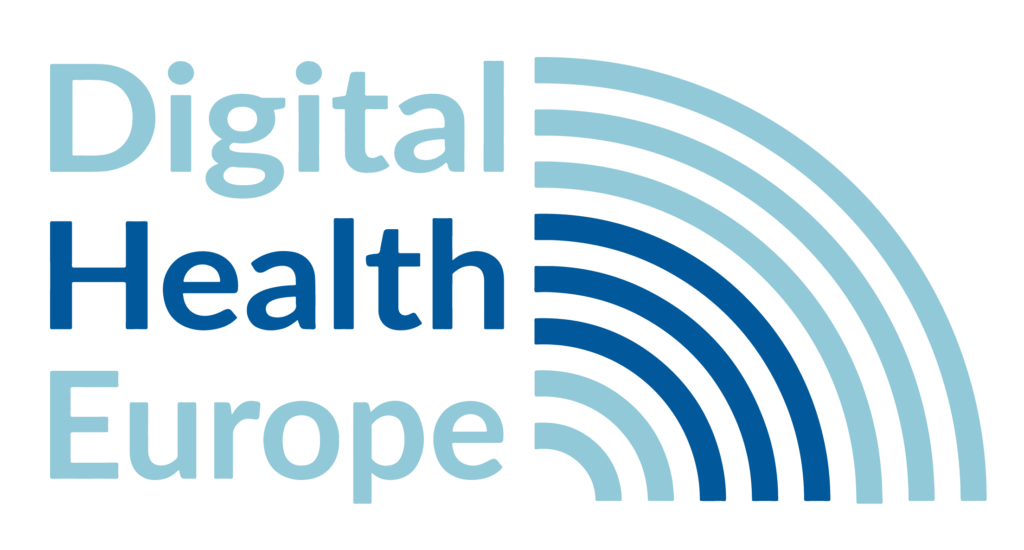Who we are
The DigitalHealthEurope consortium comprises 17 partners from 10 European countries.
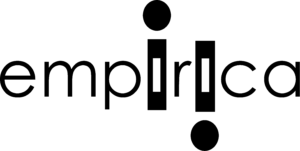
empirica Communication and Technology Research is a private research and consultancy company based in Bonn, Germany. empirica boasts a broad understanding of political, strategic, clinical, business and socio-economic questions raised by health system change and eHealth innovation. Its long-standing expertise lies in the analysis of new technology opportunities against user requirements and business models. empirica has a long track record of managing large-scale European projects for both private and public clients.
As Coordinator of DigitalHealthEurope, empirica is responsible for all project management tasks and will closely support partners leading dissemination activities. empirica will lead activities related to the development of the twinning scheme for digital solutions for person-centred integrated care, including managing the call for twinning process and the awarding of the twinning contracts. empirica is also tasked with identifying and analysing the key building blocks for scaling up deployment across Europe and will be responsible for transposing project outputs into a strategic vision of EU coordination and support on digital transformation beyond 2020.
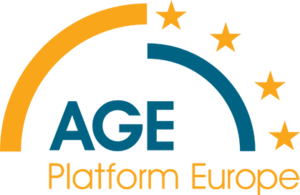
AGE Platform Europe (AGE) is a European network of 110 organisations of and for people aged 50+, established as an international not-for-profit organisation under the Belgian Law since 2001. AGE addresses a wide range of policy areas that have an impact on older and retired people, raising awareness of the issues that concern them most and lending them a voice in EU policy debates. Furthermore, AGE is active in some key European initiatives such as: the European Innovation Partnership on Active and Healthy Ageing; the Financial Services Users Group, and several EU-wide networks such as the Covenant on Demographic Change and the European Public Health Alliance.
Within DigitalHealthEurope, AGE will contribute to the analysis of person-centred integrated care initiatives, the twinning scheme, as well as assist with designing the framework for capacity and capability building in a way that addresses the needs of older people and their informal carers. AGE will also support the development of the collaboration platform on citizens’ access to their data.
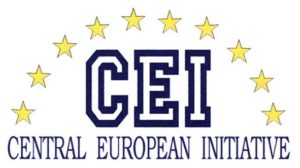
Founded in 1989, the Central European Initiative (CEI) is a regional intergovernmental forum committed to supporting European integration through cooperation. The CEI has become a recognised promoter of EU/non-EU-country partnership. Its membership currently counts seventeen countries of Central, Eastern and South-Eastern Europe who are differently positioned vis-à-vis the EU. Ten of them are EU Member States: Bulgaria, Croatia, Czech Republic, Hungary, Italy, Poland, Romania, Slovakia and Slovenia. Another four are EU membership candidates: Albania, Macedonia, Montenegro and Serbia. The remaining ones are made up by a potential candidate, Bosnia and Herzegovina, and three countries involved in the European Neighbourhood Policy: Belarus, Moldova, Ukraine. The CEI Executive Secretariat will support DigitalHealthEurope through its expertise in the analysis of the EU strategies on health and social care and their implementation. Furthermore, it will employ its long-standing experience in the promotion of regional cooperation, reaching out to its established networks in Central, Eastern and South-Eastern Europe.

Since its foundation in 2012, the Alliance has brought together European healthcare experts and patient advocates involved with major chronic diseases, shaping the personalised health policy agenda. The mission of the Alliance is to improve healthcare by accelerating the development, delivery and uptake of personalised medicine and diagnostics, through consensus. Its diverse membership provides extensive scientific, clinical, care and training expertise in personalised medicine and diagnostics, across patient groups, academia, health professionals, and industry. Relevant departments of the European Commission have observer status.
Within DigitalHealthEurope, the Alliance will contribute to the development of the collaborative platform for health data infrastructure. It will focus on coordination and support to advance personalised medicine and, by means of a survey, assess current proposed standards such as the technical frameworks developed by the Global Alliance for Genomics and Health. EAPM will also address how to stimulate the demand for combining, sharing and analysing population-scale health data.
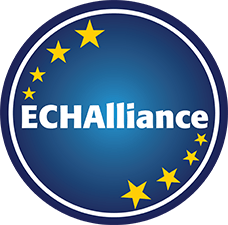
ECHAlliance represents a community of 600+ member organisations and 16,500+ experts: driving sustainable change and innovative disruption in the delivery of health and social care. It organises ecosystem meetings (100+ a year), international events, and unites stakeholders under the online platform called “Connector”. Active in 50+ regions/countries (in Europe as well as Canada, China, and the USA), the ECHAlliance members develop innovative solutions around mobile Health, chronic diseases, active & healthy ageing, Internet of Things, wearables, personalised medicine, genomics, Big Data, virtual reality, and artificial intelligence.
As part of DigitalHealthEurope, ECHAlliance will conduct a survey to capture the vision held by both demand side actors (e.g., policy-makers, healthcare providers, patients/citizens, and insurers) and supply side actors (e.g., large companies, start-ups and SMEs, researchers), on the digital transformation of health and care priorities. ECHAlliance will also oversee the process of drafting recommendations on citizen-controlled data governance and data donation.
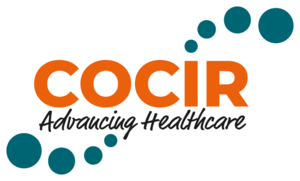
Founded as a non-profit trade association in 1959, COCIR represents the Radiological, Electromedical and Healthcare IT industry in Europe. As the EU leading industry voice on Digital Health, COCIR is committed to supporting its members and communicating with its partners in Europe and beyond on issues which affect the medical technology sector and the health of EU citizens. COCIR also works with various organisations in promoting harmonised international standards and fair regulatory control that respect the quality and effectiveness of medical devices and healthcare IT systems without compromising the safety of patients and users. COCIR’s key objectives include the active support of free worldwide trade of medical devices and maintaining the competitiveness of the European health sector. As part of DigitalHealthEurope, COCIR will help to communicate the vision espoused by the suppliers of solutions for the digital transformation of health and care. Furthermore, it will facilitate insights from industry into developing patient empowerment solutions.

EHTEL is the leading European forum for decision-makers and implementers in Europe, engaged in supporting the transformation of the health and care practice in Europe through digitalisation. The association brings together under one roof a wide range of constituencies crucial for the improvement of health and social care with health IT. EHTEL provides a platform for information, representation, networking, and co-operation to its 50+ corporate members. EHTEL joined the European Innovation Partnership on Active and Healthy Ageing at its launch in 2012. It has been part of the Blueprint / Digital Transformation of Health and Care Partners since July 2016.
As part of DigitalHealthEurope, EHTEL will oversee and lead activities related to communication, dissemination, and stakeholder engagement. It will further contribute to activities related to setting up the call for twinning and producing the final twinning report.
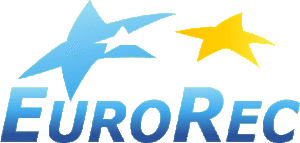
EuroRec is an independent not-for-profit organisation, promoting the use of high quality Electronic Health Record systems (EHRs) in Europe. EuroRec undertakes activities that support the effective and meaningful use of high quality and interoperable applications by healthcare professionals, meeting well-specified, functional, content-related, interoperability and governance requirements. As the most experienced European certification body, one of its main missions is to support EHR system conformity assessment and quality labelling by defining relevant functional and non-functional criteria.
In the context of DigitalHealthEurope, EuroRec is responsible for the collaboration platform on better data to advance research, disease prevention and personalised health and care, focusing on aggregated demand for European eHealth and health data infrastructures and services. It will work with many different types of stakeholders to identify business drivers and cases that can scale up the demand for infrastructures, services and data itself, at a European level.
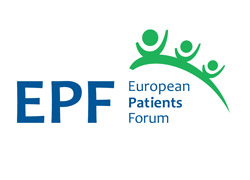
Founded in 2003, the European Patients’ Forum (EPF) is an umbrella organisation that works with patients’ groups in public health and health advocacy across Europe. Members represent specific chronic disease groups at EU level or are national coalitions of patients. The EPF advocates for access to high quality, patient-centred, equitable health and social care for all patients with chronic and/or lifelong conditions in the EU. It ensures that the patients’ community drives policies and programmes that affect patients’ lives so as to bring about changes empowering patients to be equal citizens in the EU.
Within DigitalHealthEurope EPF is responsible for the collaboration platform on digital tools for citizen empowerment and person-centred care, conducting research and evaluations on the impact of these kinds of solutions. EPF will also contribute to tasks related to citizen and healthcare provider interaction and the collaboration platform on better data to advance research, disease prevention, and personalised health and care.
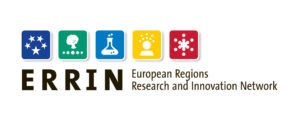
Founded in 2001, ERRIN is a Brussels-based platform of research and innovation organisations and stakeholders in regions. ERRIN aims to strengthen regional Research and Innovation capacities by exchanging information, sharing best practices, supporting European project development, policy shaping and profile raising by working in partnership. ERRIN helps regions get their voice heard in Brussels. ERRIN members are place-based, not-for-profit organisations or their representative offices in the Belgian capital. Through its 12 thematic Working Groups and the policy group, ERRIN facilitates contacts between regional offices and regions so that they can enhance their knowledge of European Research and Innovation policy and develop strategic European projects to strengthen regional competitiveness.
As part of the DigitalHealthEurope consortium, ERRIN is responsible for widening and sustaining stakeholder engagement. ERRIN will also lend its support to activities related to digital solutions for person-centred integrated care, establishing the twinning marketplace scheme and patient empowerment.

Forschungszentrum Jülich (FZJ) is one of the largest interdisciplinary research centres in Europe. Based in Jülich, Germany, it is also a leading research funding agency in the country, managing Research & Development and Innovation funds totalling more than 1,6 billion €, on behalf of various federal and state ministries The programmes managed cover biomedical areas such as bioinformatics, omics-technologies, systems biology and the internationalisation of medical informatics. FZJ also hosts several Horizon 2020 national contact points, most importantly for the Life Sciences thematic priorities of the programme.
Within DigitalHealthEurope, FZJ will support the collaboration platform on better data infrastructures. It will help to identify the most relevant ongoing initiatives and key stakeholders. Additionally, with support from experts, it will identify and analyse the main challenges, technical issues, ways to link different data sources, and solutions to address data interoperability, reusability, and knowledge extraction. The research will also determine lessons learnt, success factors, and good practice examples.
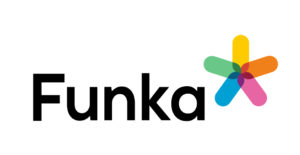
FUNKA is a market-leading SME in the field of accessibility and enjoys a close relationship with end-user organisations. The focus of FUNKA’s work goes in four distinct directions: eGovernment, eHealth, eLearning, and eInclusion. The company’s business concept is to offer expert services regarding ICT for a better quality of life, and to produce user-friendly, efficient, and accessible online solutions. From offices located in Stockholm, Sweden; Oslo, Norway; and Madrid, Spain, FUNKA experts contribute to the work of the national standardisation bodies in the three countries, and support international and European standardisation efforts.
Within DigitalHealthEurope, FUNKA will analyse and identify person-centred integrated care initiatives and the available funding support sources. FUNKA will also support tasks pursuing the scaling-up of deployment in Europe, in particular, the analysis and identification of building blocks and the development of a framework for capacity and capability building.
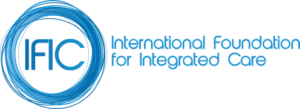
IFIC is a not-for-profit network incorporated as a foundation in the Netherlands. IFIC’s mission is to cross organisational and professional boundaries in order to bring people together to advance the science, knowledge and adoption of integrated care in policy and practice. IFIC seeks to achieve this through the development and exchange of ideas among academics, researchers, managers, clinicians, policy-makers and people who use services, alongside their carers and families throughout the world. A key focus of IFIC is to act as a research hub in partnership with its members and external academic centres internationally.
In the context of DigitalHealthEurope, IFIC will focus on scaling up the deployment of solutions for the Digital Transformation of Health and Care. It will also provide input into identifying and examining the integrated care evidence offered by key stakeholders with tailored advice and support.
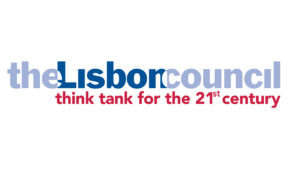
The Lisbon Council for Economic Competitiveness and Social Renewal was founded in 2003 as a non-profit association, under Belgian law. It was set up to accompany the Lisbon Agenda, Europe’s original growth and jobs programme. Over time, it has developed a pronounced focus on innovation in the public sector, digital technologies, human capital and skills, couched in the broader context of “growth and jobs”.
The Lisbon Council has a very active and dedicated community of supporters throughout Europe, numbering in the thousands. The Lisbon Council’s involvement in DigitalHealthEurope will reflect this capacity, where it is responsible for external communication, events and media campaigns. Furthermore, the Council will participate actively in further developing and joining up the three collaboration platforms by linking them to other relevant portals.
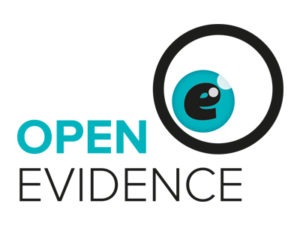
Open Evidence offers research-based evidence and practical support for the public and private sectors, delivering theory-based and empirically robust practical insights for innovative and inclusive policies and strategies. Its domains of intervention are Information Society, Health and Consumer, and Research and Innovation policy. OpenEvidence specialises in policy studies and research and has participated in preparing policy recommendations and promoting stakeholder engagement at an EU level. Its position enables it to serve as a bridge between academia and policy-making. Open Evidence’s expertise also includes the development of tools for online engagement and data-driven monitoring and analysis of policy interventions. One example is the “Monitoring and Assessment Framework for the European Innovation Partnership on Active and Healthy Ageing” (MAFEIP) tool.
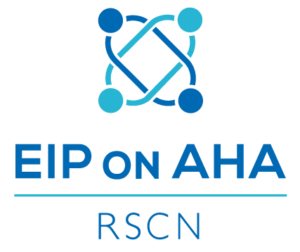
The RSCN provides a collaborative approach to the sharing and transfer of best practices in the development and scaling-up of health and care strategies, policies, and service delivery models. The RSCN is recognised by the European Commission as the principal forum representing all European Innovation Partnership on Active and Healthy Ageing Reference Sites. The network’s mission is to optimise the sharing of a strong, sustainable health and care system for all, while respecting the different competences and responsibilities in the health and care services of the Member States and Regions.
As part of the DigitalHealthEurope consortium, the RSCN will closely support tasks related to identifying solutions for person-centred integrated care and the twinning marketplace scheme. It will also contribute to the development of the collaboration platforms on citizens’ access to health data and on digital tools for citizen empowerment and person-centred care.

SPMS represents the Shared Services of the Portuguese Ministry of Health and acts as the Ministry’s central purchasing and IT authority. Its aim is to provide shared services to organisations operating in the area of health, in order to centralise, optimise and rationalise the procurement of goods and services in the Portuguese national health system. SPMS also promotes the definition and use of standards, methodologies and requirements that guarantee the interoperability and interconnection of health information systems and cross-sectional information systems of the public administration.
In the context of DigitalHealthEurope, SPMS is responsible for the development of the collaborative platform on citizen’s secure access to and management of their health data, and it will conduct a review of the solutions and systems currently in place. This review will support elaborating guidelines for citizen-controlled data governance and data donation. Furthermore, SPMS will analyse evidence from European projects on solutions for patient empowerment and citizen / healthcare practitioner interactions, with a view to scaling up their support.
